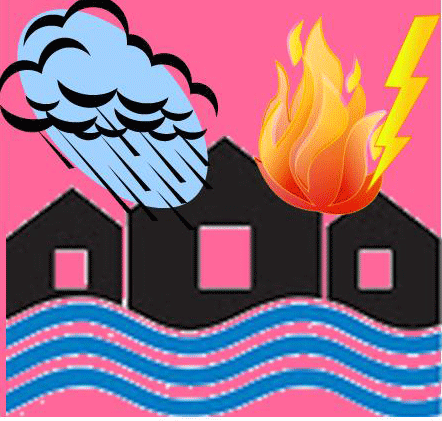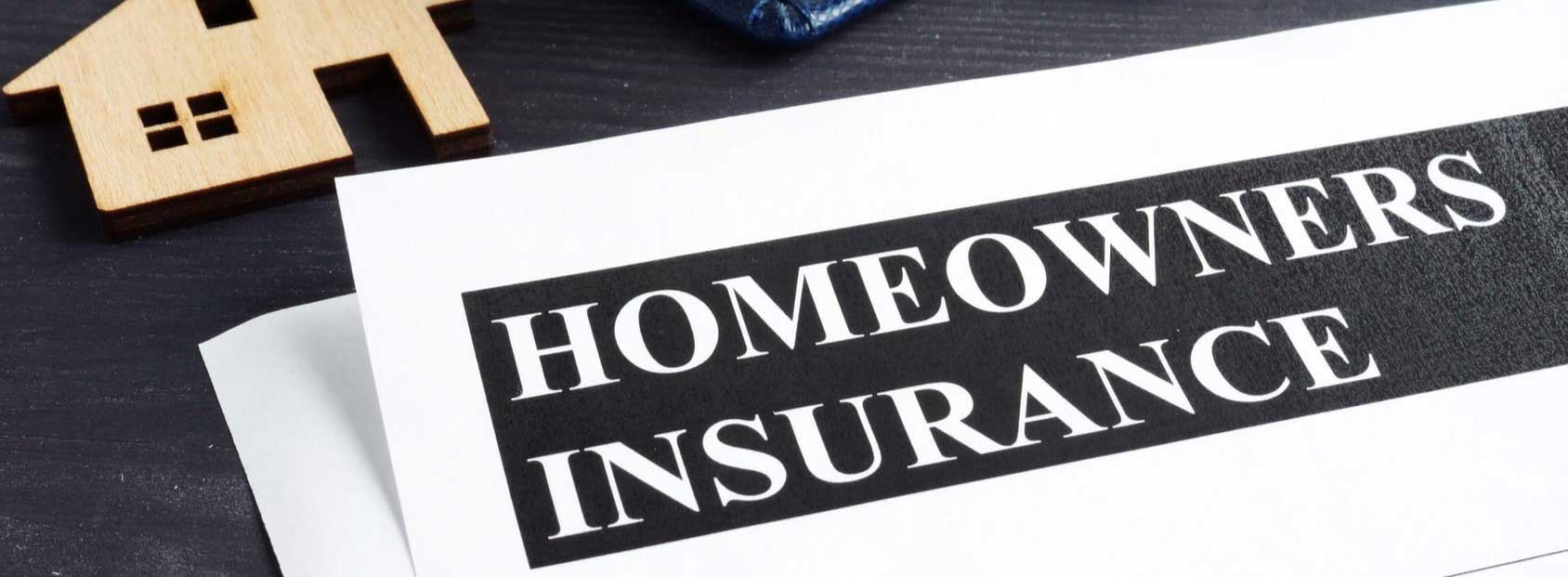Nobody wants to test if his insurance is worth the money. You buy it and hope you will never need it, or at least not too soon. Who looks forward to getting sick to see what his health insurance might pay? The same can be said when it comes to homeowners insurance. Nobody wants his home to burn down to see what his insurance will pay. Unfortunately, some unforeseeable catastrophic events can happen and will happen, and Hurricane Ian was one of them.
More than a million home and business owners are affected by the storm, and not everybody is happy. Some lost everything, and many have medium to severely damaged homes, but quite a few properties got through it without a scratch. They are the lucky ones. The not-so-lucky ones need to dig deep into their drawers and file cabinets to find their homeowners’ policies. They all paid their premiums for years or decades, and many never filed a claim. But what next? Understanding homeowners insurance would help.
How does Homeowners’ Insurance work?
Homeowners Insurance is a “Package Policy” because it covers not only the dwelling (inside/outside) and other structures but also the personal property in your home (loss, damage, theft, and vandalism). Legal responsibilities/medical costs for accidents of others that happen while you are on that property are also included. Loss of use (rent payment for a specific time while you are repairing the property) is usually also a part of the policy. However, while the sky is wide open, a homeowner’s insurance policy is tailored to particular needs and has severe limitations. You should know before you sign up with an insurer. The policy protects you only against specific losses pointed out in the document.
How is an Insurance Policy structured?
There are usually two Types of Coverage. “Open Peril Coverage” is caused by specifically listed losses. Among other things, loss due to fire and wind are two named causes. Insurances use this type of Coverage for the dwelling, the structure of the house, and adjoining buildings. “Adjoining buildings” are only certain specified buildings mentioned in the policy. A shed is usually acceptable; a tree house for the kids may not be insurable.
Personal property is covered on a “Named Peril” basis. Your policy has a particular chapter where you will find electronics, clothes, furniture, and jewelry under the “Named Peril” coverage. Some personal property will give you a headache because insurers see the risk factor always with different eyes. Like the treehouse mentioned above in the open peril paragraph, insurers will most likely decline Coverage for your kids’ trampoline.
What is explicitly not covered in homeowners insurance?
Homeowners insurance is not a blanket insurance covering everything mother nature throws at you. Floods caused by rising water tables (lakes, rivers, oceans), earthquakes and landslides, and sinkholes, amongst others, are never part of the deal. Maintenance issues (pest infestation or mold build-up caused by neglected repairs), sewer back-up, poor repairs by an unlicensed or licensed contractor, defective maintenance, damage from war or radioactive hazards, or canine attacks are also usually not covered. Not every insurance company will accept your Pitbull or Doberman with open arms. Insurers are risk-averse by nature.
The Devil is in the Details. What do I need to know about the Fine Print?
Therefore, reading and understanding the fine print in your 40+ pages document is crucial because it can get tricky when filing a claim. For example, as mentioned above, mold caused by a maintenance issue (unrepaired roof leak) is always the homeowner’s headache. In contrast, mold caused by a busted pipe in the kitchen is the insurer’s problem. This example tells you that maintaining your house is always a good idea if you want to avoid trying this insurance clause out. You may fail to win.
What can you do when it is not covered?
A rider or endorsement will help to make some adjustments to your policy. Don’t panic – there is a solution for (almost) everything. Add an endorsement, and your $50k Rolex will be covered if a burglar falls in love with it. The same applies to your 300 years old Stradivari or your Picasso sculpture. Don’t hide them under the bed. Those guys will find them anyway because they are used to extraordinary hiding places. Therefore, if you want to be safe, add those pieces to the policy. Of course, nothing is for free, and the premium will be adjusted accordingly. However, your cat will appreciate more space under the bed.
Flood-, Sinkhole-, and Earthquake-Insurances are different kettles of fish. Most likely, Homeowners’ Insurance does not insure those catastrophic events. The homeowner must buy a separate policy from another company, usually run or backed up by a government entity. The costs of major floods or earthquakes can overwhelm even the most solvent private insurance carriers. Therefore, insurance carriers are trying to spread the risk, and the government has deeper pockets.
Is Flood Insurance a Part of the standard Homeowners Insurance?
While earthquakes are not a biggy in Florida, sinkholes and floods are a different story. As bad as they are, Sinkholes may affect only one or only a few buildings at a time. No single sinkhole has ever swallowed hundreds of homes. Floods are a big concern in Florida, and that problem is certainly not going away in the future. Floods are mean and much more severe when considering that, more or less, the whole State of Florida is in a flood zone. Many homes are, on average, only 8 to 15 feet above sea level; therefore, it is not unusual that, in a single event, more than several thousand homes can get severely flooded.
Are only certain homes in low-lying areas affected by Floods?
Don’t bet on it. Not only homes along the coastline, homes on lakes, rivers, nature preserves, and golf courses with low-lying areas can also be in danger of flooding. Refrain from solely relying on FEMA‘s Flood Map. Although in most cases pretty accurate and updated frequently, many homes that fell victim to flooding in the past years were not in a FEMA flood zone. Sometimes a little bump in your backyard can become navigable water during a tropical storm or hurricane. Hurricane Ian dumped more than 15 inches of rain in some locations within a few hours. When your house is low and draining is sluggish, that water will eventually come knocking at your door. You need only two inches of water in your house for a few hours, and the damage will be unimaginable.
What is the difference between Replacement Cost and Actual Cash Value?
The structure of the home is insured on a replacement cost basis. You (and the insurance carrier) figure out how much money is needed to rebuild the home’s structure in case of a catastrophic event. There is no deduction for depreciation due to the home’s age or overall condition. As a rule of thumb, the replacement cost should at least cover 80% of the dash needed to rebuild the house. You will only get paid the amount covered in the policy – no money in excess. If it costs more than that amount, you are on your own.
Why can you get along with 80% coverage?
In many cases, the dwelling is only partially destroyed after an event. However, you can never predict what may happen. Therefore, it is still wiser to cover 100%. If you’d like to sleep better, add an endorsement that covers increases in the cost of rebuilding. Suppose you figured out the 100% threshold, but inflation has caused material prices to explode a few months later. What can you do? Could you ask your insurance agent? You should. There may be a way to keep your replacement cost even more flexible. However, extras cost money, and you already have to deal with out-of-pocket costs. Insurance policies come with deductibles unless you are willing to pay a higher premium.
Are Personal Items covered on a Replacement Cost Basis?
In a standard policy, Coverage for your personal items is on a cash-value basis – not on a replacement cost basis. Your big screen TV was $5,000 five years ago? Unfortunately, it has lost 50% of its value. Expect only a $2,500 check from the insurance if that burglar takes your Rolex and the TV set with him. However, you can fix the cash-value Coverage with some cash again. Like your Rolex or artwork, you can take the pain of depreciation out of the equation. Your premium will undoubtedly go up, but if you can sleep better – go for it. A higher premium may be healthier than sleeping pills for the rest of your life.
What are the other Fringe Benefits of your Policy?
Insurance coverage covering your liability for accidents of other people (medical care, court costs, awards by the court) is covered with an upper limit. Again, you can always raise that limit with an endorsement. If aunt Mary slips and falls after her 5th martini, fixing that broken hip can easily exceed the $100k threshold if that is the limit stated in your policy.
Why should I check my Homeowners Insurance Coverage from time to time?
Please refrain from assuming – read the contract and understand it before you sign. Most people buy the cheapest policy without knowing what is covered. Then they store it away and can hardly find it when needed. Many homeowners got a rude awakening after Hurricane Ian. Their pool cage was on their neighbor’s property, and they needed a new one. Surprise, surprise! Unfortunately, they had to learn that the new pool cage would come entirely out of their pocket. Many insurance companies don’t cover pool cages or only a useless amount for repairs.
In those policies, “it was spelled out in the policy – an absolute no-brainer. The problem was who had read all 40 pages of the document before.
Insure your home for the correct amount. If you have a catastrophic loss, it will bite you when you are underinsured. Conduct an annual review because material and labor prices are not decreasing. Remember that you want to cover the replacement cost!
Do I have other options if my insurance is too expensive?
There may be a federal or State government plan or insurance available in your State. In Florida, Citizen insurance is a last resort if nobody else will insure the home. Several companies left the State of Florida recently or went belly up. Ask your agent what’s available. You may also be able to bundle your Car, Boat, and Home insurance with one carrier.
Questions? Contact us below!



